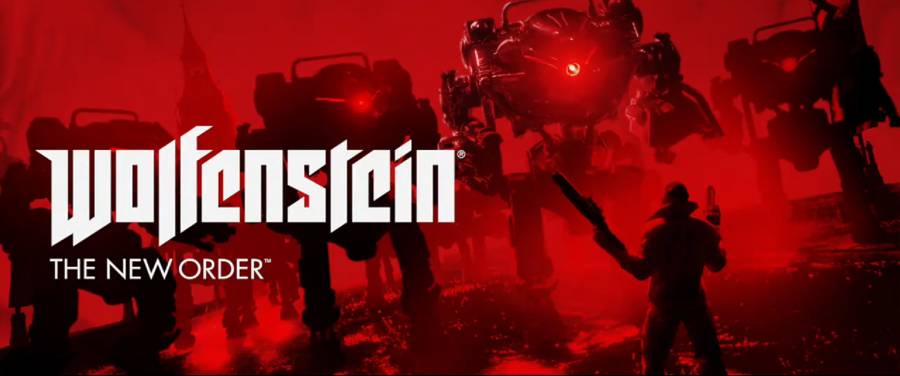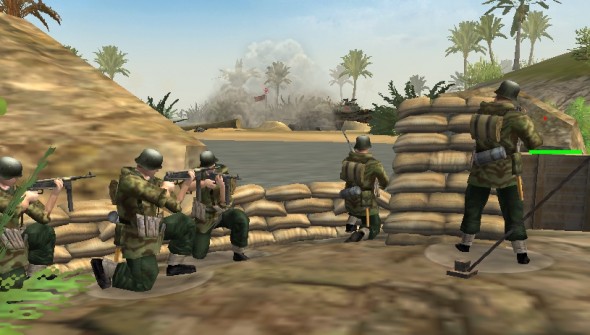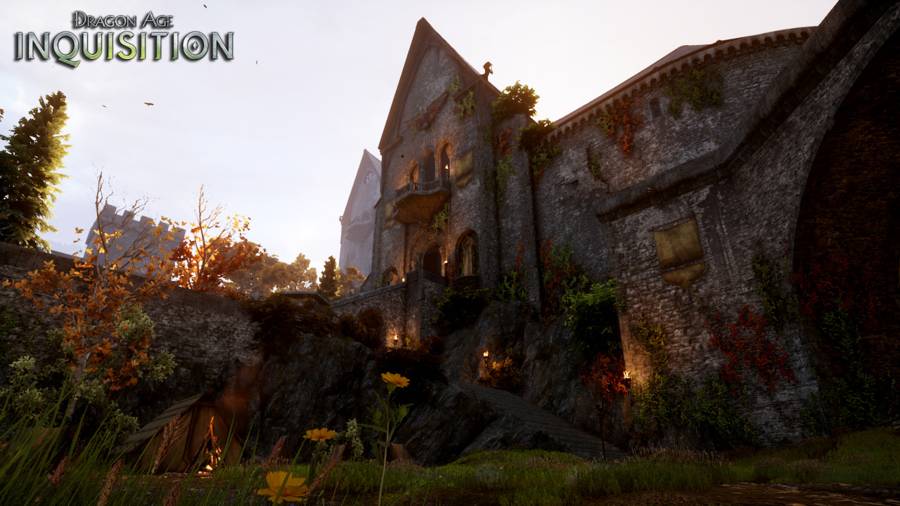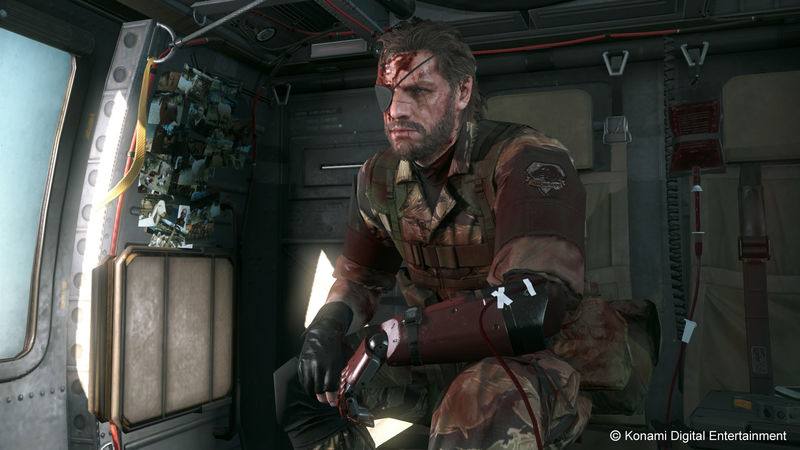

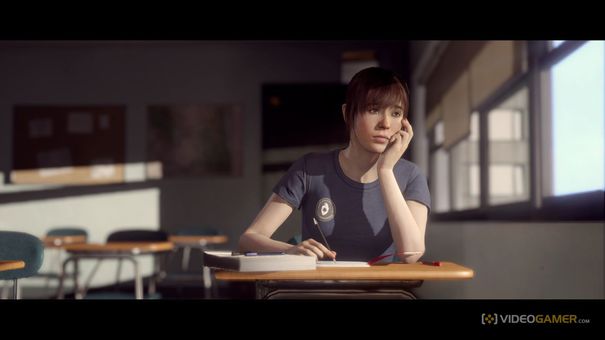

Warning: Spoilers Within
The trouble with desperately wanting your work to be taken seriously, like David Cage so obviously wants Beyond to be, is that someone might actually take you up on the offer. Somewhat inevitably, Cage has been found very much wanting. He's created a game that relies solely on its narrative – mechanically, for a great deal of the game you'll be doing nothing but flick the right stick when prompted – to hook and intrigue players until its conclusion. It doesn't. Apart from a few smart scenes, Beyond is as hackneyed, overplayed, and generally boring as anything the worst of mainstream Hollywood has to offer. Cage thinks he's Paul Thomas Anderson. In this instance, he's actually closer to Paul W. S. Anderson.
Essentially The Fury by way of teen drama (with a bit of F.E.A.R. thrown in for good measure), Cage shoots for emotion but often finds himself directing pure schlock. He isn't good enough of a writer to craft a story about a young girl's journey from child to adulthood, and all of the difficulties adolescence entails. He's certainly not good enough to then throw in a supernatural angle over the top.
Ellen Page does a fine job with the material, in fairness. She's a good enough actor to wring some engagement out of Jodie's journey, which sees her go from haunted (literally) child prodigy to CIA operative, and eventually fugitive from The State That Created Her But Can't Control Her(TM). There's plenty of scope in that arc, no matter how many times we've seen it, for an entertaining experience. But her journey is so flat, so drama-free, that although Jodie may age, she never really grows as a character.
This is mainly because Cage attributes no mystery to Jodie's power, and said power is inconsistent and only seems to exist to move the plot forward. Beyond is a game where Jodie can seemingly tell very few people about Aiden, for fear of reprisals, and yet a lot of the story is set in a building with DEPARTMENT OF PARANORMAL ACTIVITIES beaming from the side. Her psychic ability isn't so much revealed as it is broadcast, and as it never expands (say, Akira-style) it grows old, fast.
It's inside the DEPARTMENT OF PARANORMAL ACTIVITIES building – Jodie's home for many years – that she is subject to various experiments, and as such we spend a lot of time there as well. These vignettes should be used to create suspense as to what the power actually is, and how it can be used. But they're mere exposition: you can't really choose who Jodie becomes because it's already happened. You can only be shown.
In one scene, your adopted father – who's an asshole, naturally – and mother turn you over to Willem Dafoe and his team of paranormal scientists. The father has previously been shown to have violent tendencies (out of fear of Jodie's 'gift', it is noted) and, via Aiden, you have the chance to kill him as he turns to leave.
Except, you can't actually do that, or at least, I couldn't. Using Aiden, I kept Force-choking him for as long as I could, yet the game stopped me from finishing the job. Moments later, Willem Dafoe tells Jodie (me?) I made "the right choice". I made no choice at all.
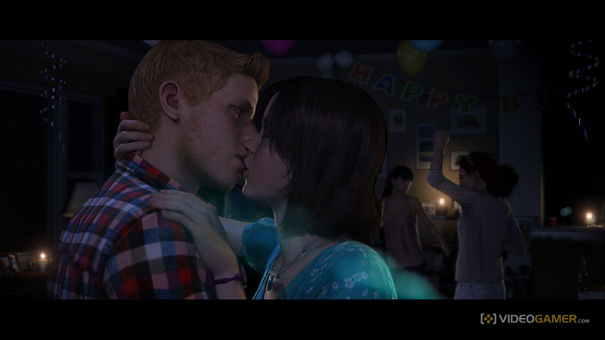
It's a fundamental problem, and one that highlights how confused and confusing the implementation of Aiden is. Both protector and jailor, he's meant to represent the game's central conflict of ordinary life vs extraordinary ability. And yet, I never felt anything I did had any effect. Sometimes Jodie has full control over Aiden, sometimes not. The level of dissonance it introduces to the game is enormous, and fatal.
Cage desperately wants players to have empathy with Jodie, and as such he devotes much time to you 'being' her. You'll control her while going about normal everyday interactions. You'll toss and turn when trying to sleep. A lot of the game's minute-to-minute play, in fact, is dedicated to the mundane and, in some way, you may feel for her plight. Which would be great if, as Aiden, you could do something about it. But you can't, because the game dictates your interaction: which people to control, which items to interact with, even how far you can be from Jodie (which, naturally, changes all the time). The net result is that you're stuck in a weird, almost agency-free relationship, a bit-part player of two half-characters, trying to find the right combination to make the scene play out.
The beauty of Heavy Rain is that it subscribed to the theory that action is character. On the surface, its setup is no more refined or unique than Beyond's – a detective story – but that alone is enough to make it much more interesting. It asks the player to solve the mystery of who the Origami Killer is but, crucially, by having multiple player characters – some under suspicion – and scenarios it puts player agency and engagement at the forefront of the game. You're constantly driving the investigation, reassessing your position on the case: red herrings, new evidence, and unseen revelations mix with dawning realisations and self-questioning (am I the bad guy?) to create something that, for all its faults, intrigued.
Beyond's single protagonist setup (Aiden is essentially a floating limb for most of the game, and 'his' character never extended much further than overprotective jealousy) can't keep changing viewpoints like Heavy Rain literally does, and is so uninvolving to play, that it is forced to use another trick to sustain interest: a non-linear narrative. The trouble is that while this technique seems like the perfect way to sustain player involvement and introduce various plot twists, in the wrong hands it muddles motivations and kills pacing.
Beyond, sadly, falls into that second bracket. Even worse, because there's an absolute paucity of development within the principal character's interactions, and few real puzzles or meaningful player input, Cage has to rely on cheap stereotyping and questionable writing to introduce some form of momentum to move the story forward, or at least keep things interesting. So we get stuff like Willem Dafoe's character turning into a megalomaniacal bad guy after losing his wife and child in an obvious twist, or a US Army general who may as well be played by Snidely Whiplash.
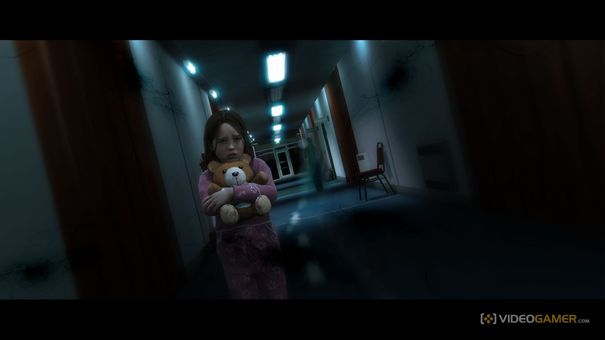
Then there's a segment in Somalia, where Jodie is sent to assassinate a warlord, that makes precisely zero sense apart from to provide incentive for her to leave the program. Quite why the US couldn't just do the hit themselves is unclear, even given the necessary plausible deniability of the op, as she's evacuated about five metres away from where she kills him.
Next, a scene where Jodie, on the run and off the grid, turns up lost on a desert highway, desperate for water. Her only saviour? A small ranch. That's populated by a Navajo family that have lived there for centuries. That are (in the beginning, at least) haunted by spirits of their dead ancestors, like all Native Americans...
There's little excuse for that last example, but the rest of them, played out of order and interspersed with constant flashbacks to young Jodie in the lab, also conspire to make progression incredibly dull because, again, you're playing a role, not playing a character. Every time you think you're building to something, you're snatched back out. None of my actions ever seemed to change the character or the world around her. I made choices, sure. But for the most part I never felt they meant anything.
It's a shame, because Beyond is by far one of the most interesting games to be made this generation. And, when it gets it right, it has promise, such as when Jodie is forced to live in a homeless community. There, where I found my desire to keep Aiden under wraps yet also wanted to help my new buddies survive the winter, a tension was created that's not found elsewhere. I was making an actual choice, and it was being reflected in-game.
The problem is the rest of the experience, what with its mechanical deficiencies, terrible dialogue, obvious twists and ending that betrays pretty much every choice I made. Stories like this can be told in video games. They just need better storytellers.
